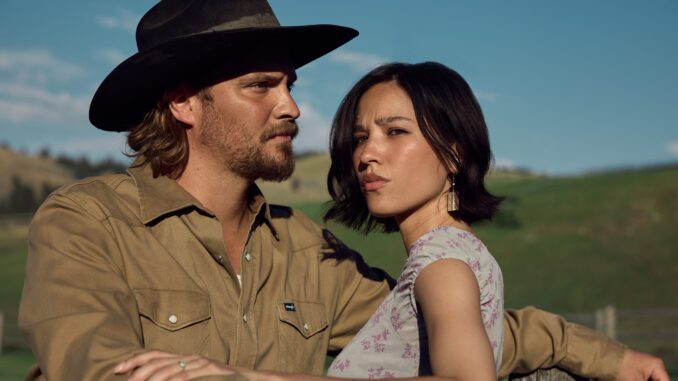
The Vanishing Cowboy: Kevin Costner, Yellowstone, and the Shifting Landscape of Legacy
The rumors swirled like a dust devil across the Montana plains, whispers carried on the wind and amplified by the insatiable churn of the entertainment industry: Kevin Costner, John Dutton himself, was leaving Yellowstone. More than a celebrity departure, this purported exit struck at the very heart of the show, threatening to unravel the carefully constructed narrative and cast a long, ominous shadow over its future. The situation, a complex blend of creative differences, scheduling conflicts, and financial considerations, speaks volumes not only about the specific circumstances of Yellowstone, but also about the evolving landscape of television production and the precarious nature of legacies built on popular culture.
John Dutton, as portrayed by Costner, is the linchpin of Yellowstone. He is the rugged patriarch, the embodiment of the American West, fiercely protective of his land and lineage. Costner, with his weathered face and understated charisma, lends a gravitas to the role that feels both authentic and compelling. He provides the moral compass (albeit a deeply flawed one) amidst the swirling chaos of family feuds, political machinations, and external threats. Without Dutton, the Dutton ranch risks becoming rudderless, a ship lost at sea without its captain.
The significance of Costner’s potential departure extends beyond the mere absence of a character. It disrupts the carefully calibrated power dynamics within the show. The relationships between John Dutton and his children, particularly Beth and Kayce, are the narrative engine driving the drama. Beth's unwavering loyalty and Kayce's internal struggle between his family and his oath are fundamentally tied to their father's influence. Removing Dutton forces a reevaluation of these core relationships, potentially altering the very essence of what makes Yellowstone compelling. The writers would be tasked with not only filling the void left by a central character but also re-engineering the foundational relationships that support the entire narrative structure.
Moreover, Costner's presence imbued Yellowstone with a certain level of prestige. His decades-long career, punctuated by iconic roles in films like "Dances with Wolves" and "Field of Dreams," lent the show a gravitas that helped catapult it from a niche cable drama to a cultural phenomenon. He was, in many ways, the face of the show, attracting viewers with his established star power. Without him, Yellowstone faces the risk of losing some of its cachet, potentially impacting viewership and future spin-offs.
The rumors surrounding Costner's departure also shine a harsh light on the changing dynamics within the television industry. The rise of streaming services and the increasing demand for high-quality content have created a landscape where actors are often juggling multiple projects simultaneously. This can lead to scheduling conflicts and creative clashes, particularly when a star of Costner's caliber has other professional ambitions. Furthermore, the financial complexities of long-running television shows, including renegotiations of contracts and disputes over salaries, can further complicate matters, as allegedly contributed to the Yellowstone situation. These issues highlight the tension between artistic vision, financial realities, and the demands of a rapidly evolving entertainment landscape.
Ultimately, the fate of Yellowstone without Kevin Costner remains uncertain. While the show has proven its ability to attract a dedicated audience and introduce compelling new characters, the absence of its central figure will undoubtedly leave a significant void. Whether the writers can successfully navigate this challenge, crafting a compelling narrative that honors the existing characters while forging a new path forward, will determine the longevity and legacy of Yellowstone.
In conclusion, the Kevin Costner departure rumors are more than just a behind-the-scenes drama. They represent a pivotal moment for Yellowstone, forcing a reckoning with its identity and future. The success or failure of navigating this crisis will serve as a case study for other television shows facing similar challenges, highlighting the fragility of legacy and the ever-shifting sands of the entertainment industry. The vanishing cowboy leaves behind a vast landscape, uncertain and waiting to be reshaped, leaving audiences to wonder if Yellowstone can truly thrive without its John Dutton.
